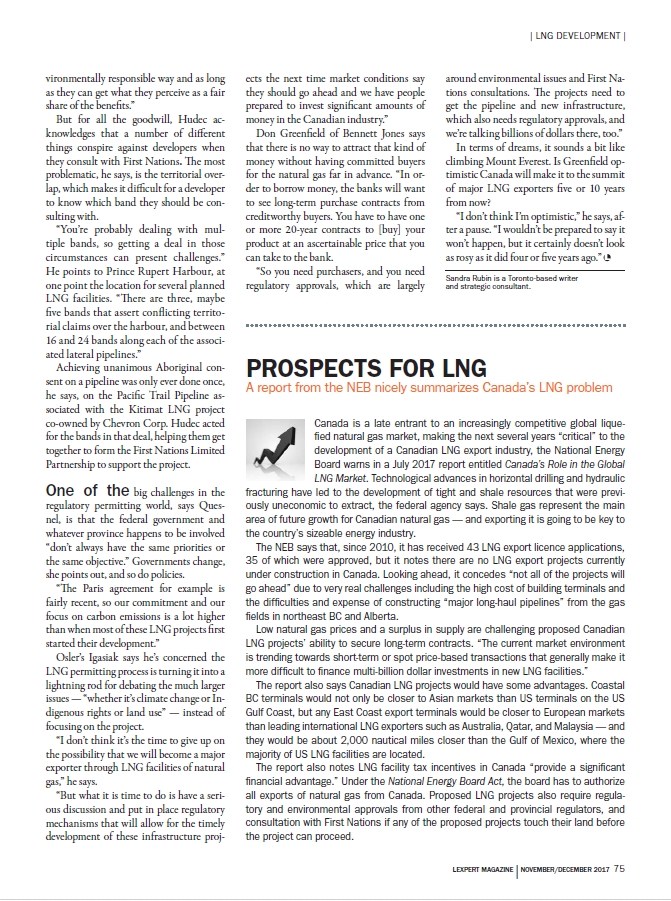 Canada is a late entrant to an increasingly competitive global liquefied natural gas market, making the next several years “critical” to the development of a Canadian LNG export industry, the National Energy Board warns in a July 2017 report entitled Canada’s Role in the Global LNG Market. Technological advances in horizontal drilling and hydraulic fracturing have led to the development of tight and shale resources that were previously uneconomic to extract, the federal agency says. Shale gas represent the main area of future growth for Canadian natural gas — and exporting it is going to be key to the country’s sizeable energy industry.
Canada is a late entrant to an increasingly competitive global liquefied natural gas market, making the next several years “critical” to the development of a Canadian LNG export industry, the National Energy Board warns in a July 2017 report entitled Canada’s Role in the Global LNG Market. Technological advances in horizontal drilling and hydraulic fracturing have led to the development of tight and shale resources that were previously uneconomic to extract, the federal agency says. Shale gas represent the main area of future growth for Canadian natural gas — and exporting it is going to be key to the country’s sizeable energy industry.The NEB says that, since 2010, it has received 43 LNG export licence applications, 35 of which were approved, but it notes there are no LNG export projects currently under construction in Canada. Looking ahead, it concedes “not all of the projects will go ahead” due to very real challenges including the high cost of building terminals and the difficulties and expense of constructing “major long-haul pipelines” from the gas fields in northeast BC and Alberta.
Low natural gas prices and a surplus in supply are challenging proposed Canadian LNG projects’ ability to secure long-term contracts. “The current market environment is trending towards short-term or spot price-based transactions that generally make it more difficult to finance multi-billion dollar investments in new LNG facilities.”
The report also says Canadian LNG projects would have some advantages. Coastal BC terminals would not only be closer to Asian markets than US terminals on the US Gulf Coast, but any East Coast export terminals would be closer to European markets than leading international LNG exporters such as Australia, Qatar, and Malaysia — and they would be about 2,000 nautical miles closer than the Gulf of Mexico, where the majority of US LNG facilities are located.
The report also notes LNG facility tax incentives in Canada “provide a significant financial advantage.” Under the National Energy Board Act, the board has to authorize all exports of natural gas from Canada. Proposed LNG projects also require regulatory and environmental approvals from other federal and provincial regulators, and consultation with First Nations if any of the proposed projects touch their land before the project can proceed.




